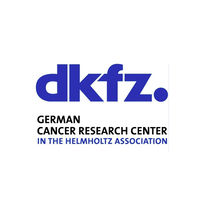预约演示
更新于:2025-09-20
BAY-2965501
更新于:2025-09-20
概要
基本信息
原研机构 |
非在研机构- |
权益机构- |
最高研发阶段临床1期 |
首次获批日期- |
最高研发阶段(中国)临床1期 |
特殊审评- |
登录后查看时间轴
结构/序列
分子式C20H19FN4O3S |
InChIKeyHSBUVKDEUUJREZ-NSHDSACASA-N |
CAS号2732902-09-7 |
关联
2
项与 BAY-2965501 相关的临床试验CTR20242146
一项开放性、I 期、首次用于人体的剂量递增和剂量扩展,旨在评价二酰基甘油激酶 zeta 抑制剂 (DGKzi)BAY 2965501 单药治疗和联合治疗晚期实体瘤研究参与者的安全性、耐受性、最大耐受剂量或最大给药剂量、药代动力学、药效学和肿瘤缓解情况的研究
研究人员正在寻找治疗晚期实体瘤患者的更好方法。晚期实体瘤是指可能已扩散到附近组织、淋巴结和/或身体远处部位的癌症类型,目前可用的治疗方法不太可能治愈或控制这些癌症。这项研究主要针对某些类型的皮肤癌、肾癌、胃癌和肺癌。研究治疗药物 BAY2965501 目前正在开发中,可作为单一疗法或与一种名为 pembrolizumab 的药物联合使用,用于治疗晚期实体瘤患者。BAY2965501 可阻断 T 细胞中的一种酶,从而激活 T 细胞。T 细胞是一种已知具有抗癌作用的免疫细胞,而 BAY2965501 是一种潜在的新型免疫疗法。这项首次人体试验的主要目的是了解 - 不同剂量的 BAY2965501 在单药或联合用药时的安全性如何; - BAY2965501 在单药或联合用药时引起的医疗问题的耐受程度(也称为耐受性); - 单药或联合用药的最大用量是多少; - 单药或联合用药如何进入、通过和排出体外。中国患者暂不参与联合用药组。
开始日期2024-08-26 |
申办/合作机构  Bayer AG Bayer AG [+2] |
NCT05614102
An Open-label, Phase 1, First-in-human, Dose Escalation and Expansion Study to Evaluate the Safety, Tolerability, Maximum Tolerated or Administered Dose, Pharmacokinetics, Pharmacodynamics, and Tumor Response Profile of the Diacylglycerol Kinase Zeta Inhibitor (DGKzi) BAY 2965501 as Monotherapy, and in Combination, in Participants With Advanced Solid Tumors
Researchers are looking for a better way to treat people who have advanced solid tumors. Advanced solid tumors are types of cancer that may have spread to nearby tissue, lymph nodes, and/or to distant parts of the body and that are unlikely to be cured or controlled with currently available treatments. This study focuses on certain types of skin cancer, kidney cancer, stomach cancer, and lung cancer. The study treatment BAY2965501 is currently under development as monotherapy or in combination for the treatment of people with advanced solid tumors. BAY2965501 blocks an enzyme in T-cells to activate them. T-cells are a type of immune cell that are known to have an anti-cancer effect and BAY2965501 is a potential new immunotherapy. The main purpose of this first-in-human study is to learn: • how safe different doses of BAY2965501 are when given as a single drug or in combination, • the degree to which medical problems caused by BAY2965501 when given as a single drug or in combination, can be tolerated (also called tolerability), • what maximum amount can be given as a single drug or in combination, and • how it moves into, through and out of the body as a single drug or in combination. To answer this, researchers will look at: • the number and severity of medical problems participants have after taking BAY2965501 as a single drug or in combination for each dose level. These medical problems are also referred to as adverse events. • the (average) total level of BAY2965501 in the blood (also called AUC) after intake of single and multiple doses • the (average) highest level of BAY2965501 in the blood (also called Cmax) after intake of single and multiple doses Doctors keep track of all medical problems that participants have during the study, even if they do not think the medical problem might be related to the study treatment. In addition, the researchers want to know if and how the participants' tumors change after taking BAY2965501. The study will have two parts. The first part, called dose escalation, is done to find the most appropriate dose that can be given in the second part. For this, participants will be assigned to receive one of the planned doses and schedules of BAY2965501 as single drug or participants will be assigned to one of the increasing doses of BAY2965501 in combination with 200mg pembrolizumab. Additionally, platinum based chemotherapy as decided by the treating investigator will be given within the first months (at minimum 2 cycles and up to 6 cycles maximum). Here participants will receive BAY 2965501 in combination with pembrolizumab and platinum based chemotherapy.
All participants will take BAY2965501 by mouth. Additionally, in combination group 1, pembrozilumab will be given as infusion using a small tube that goes into your vein. In combination group 2, pembrolizumab and platinum based chemotherapy will be given as infusion using a small tube that goes into your vein.
In the second part, called dose expansion, all participants in the single drug group will receive up to 2 of the most appropriate doses of BAY2965501 from the 1st part as tablet by mouth. The participants in the combination groups (group 1: + pembrozilumab; group 2: + pembrolizumab and platinum based chemotherapy) will receive the most appropriate dose of BAY2965501 from the first part. Participants in both parts of the study, will take the study treatment until the tumor gets worse (also known as 'disease progression'), or until the participants have medical problems. In general, the study treatment is planned for a maximum of 35 cycles. Each participant will be in the study for several months, including a screening phase of up to 28 days, few months of treatment depending on the participant's benefit, and a follow up phase after the end of treatment. Participants in part two will be assigned to one of 3 groups depending on cancer characteristics.During the study, the study team will: • take blood and urine samples • do physical examinations • check vital signs such as blood pressure, heart rate, body temperature • examine heart health using ECG (electrocardiogram) • check if the participants' cancer has grown and/or spread using CT (computed tomography) or MRI (magnetic resonance imaging) and, if needed, bone scan • take tumor samples (if required) The treatment period ends with a visit no later than 7 days after the last BAY2965501 dose in the single drug and combination group. About 30 and 90 days after the last dose and every 12 weeks thereafter, the study team will check the participants' health and any changes in cancer. This follow-up period ends with worsening of the cancer, start of new anti-cancer therapy, or until the participant leaves the study.
All participants will take BAY2965501 by mouth. Additionally, in combination group 1, pembrozilumab will be given as infusion using a small tube that goes into your vein. In combination group 2, pembrolizumab and platinum based chemotherapy will be given as infusion using a small tube that goes into your vein.
In the second part, called dose expansion, all participants in the single drug group will receive up to 2 of the most appropriate doses of BAY2965501 from the 1st part as tablet by mouth. The participants in the combination groups (group 1: + pembrozilumab; group 2: + pembrolizumab and platinum based chemotherapy) will receive the most appropriate dose of BAY2965501 from the first part. Participants in both parts of the study, will take the study treatment until the tumor gets worse (also known as 'disease progression'), or until the participants have medical problems. In general, the study treatment is planned for a maximum of 35 cycles. Each participant will be in the study for several months, including a screening phase of up to 28 days, few months of treatment depending on the participant's benefit, and a follow up phase after the end of treatment. Participants in part two will be assigned to one of 3 groups depending on cancer characteristics.During the study, the study team will: • take blood and urine samples • do physical examinations • check vital signs such as blood pressure, heart rate, body temperature • examine heart health using ECG (electrocardiogram) • check if the participants' cancer has grown and/or spread using CT (computed tomography) or MRI (magnetic resonance imaging) and, if needed, bone scan • take tumor samples (if required) The treatment period ends with a visit no later than 7 days after the last BAY2965501 dose in the single drug and combination group. About 30 and 90 days after the last dose and every 12 weeks thereafter, the study team will check the participants' health and any changes in cancer. This follow-up period ends with worsening of the cancer, start of new anti-cancer therapy, or until the participant leaves the study.
开始日期2022-11-04 |
申办/合作机构 |
100 项与 BAY-2965501 相关的临床结果
登录后查看更多信息
100 项与 BAY-2965501 相关的转化医学
登录后查看更多信息
100 项与 BAY-2965501 相关的专利(医药)
登录后查看更多信息
9
项与 BAY-2965501 相关的新闻(医药)2024-06-21
·医药观澜
中国国家药监局药品审评中心(CDE)官网公示,近日拜耳(Bayer)公司申报的两款1类新药获得临床试验默示许可,分别拟用于治疗晚期实体瘤和急性缺血性脑卒中患者。根据拜耳公开资料,这两款新药分别为DGKα抑制剂和抗a2AP的蛋白质药物,在国际上分别处于1期和2期临床阶段。
BAY 2862789口服溶液:DGKα抑制剂
适应症:晚期实体瘤
BAY 2862789口服溶液由拜耳与德国癌症研究中心(DKFZ)合作开发,为小分子DGKα抑制剂,目前在国际范围内处于1期首次人体研究阶段,拟开发治疗实体瘤。
甘油二酯激酶(DGKs)家族被认为是T细胞和NK细胞发育、分化和功能的生理调节剂,在多种细胞信号传导通路中起着重要的调节作用。DGKα和DGKζ均是DGKs主要的亚型,二者在T细胞中的上调均会导致T细胞沉默。
研究表明,DGKα在几种难治性肿瘤细胞中高表达,包括黑色素瘤、肝细胞癌、胶质母细胞瘤等,它能减缓细胞凋亡、促进细胞增殖。除癌细胞外,DGKα在T细胞中也非常丰富,并诱导T细胞沉默,这是晚期癌症逃过免疫作用的主要机制。因此,DGKα特异性抑制剂治疗癌症有望发挥抑制癌细胞增殖、同时激活T细胞功能的双重抗癌作用。此外,抑制DGKα可协同增强PD-1/L1的抗癌作用,为难治性癌症提供了一种有希望的新治疗策略。
值得一提的是,拜耳与德国癌症研究中心(DKFZ)还合作开发了一款DGKζ抑制剂BAY 2965501,该产品已经于今年4月在中国获批临床。研究表明,联合抑制/沉默DGKα和DGKζ可协同刺激黑色素瘤细胞凋亡和T细胞中白细胞介素-2的产生,二者有望产生协同抗癌作用。
BAY 3018250:抗a2AP的蛋白质药物
适应症:急性缺血性脑卒中
血栓性血管闭塞是缺血性卒中的主要原因。α2-抗纤溶酶(a2AP)是一种纤溶酶抑制剂,为丝氨酸蛋白酶抑制剂家族的一员,与缺血性卒中、组织纤溶酶原激活剂(rt-PA)治疗失败的风险增加有关。抗a2AP治疗可显著减少血栓栓塞性卒中后微血管血栓形成、缺血性脑损伤、脑肿胀、脑出血和死亡,这些研究提示暂时失活a2AP可能对缺血性脑卒中具有治疗价值。
BAY 3018250是拜耳心血管疾病研发管线中的一员,为抗a2AP的蛋白质类药物,拟开发治疗急性缺血性卒中和肺栓塞。该产品在国际范围内目前正处于治疗深静脉血栓(DVT)的2期临床研究阶段。DVT会导致严重的健康问题,包括血凝块卡在肺部,阻碍血液流向肺部等。BAY3018250可以通过溶解血凝块起到治疗作用。
本次BAY 3018250在中国获批临床,针对适应症为急性缺血性脑卒中。这意味着该产品即将在中国开展针对这种新适应症的临床研究。
参考资料:
[1]中国国家药监局药品审评中心(CDE)官网. Retrieved June 20,2024, From https://www.cde.org.cn/main/xxgk/listpage/4b5255eb0a84820cef4ca3e8b6bbe20c
[2]拜耳研发管线. . Retrieved Apr 30,2024, From https://www.bayer.com/sites/default/files/ph-rd-pipeline-2024-05-final-1.pdf
[3]Sakane F, et al. (2021)The Roles of Diacylglycerol Kinase α in Cancer Cell Proliferation and Apoptosis. Cancers (Basel). doi: 10.3390/cancers13205190.
[4]Reed GL, Houng AK, Singh S, Wang D. (2017)α2-Antiplasmin: New Insights and Opportunities for Ischemic Stroke. Semin Thromb Hemost. doi: 10.1055/s-0036-1585077.
内容来源于网络,如有侵权,请联系删除。

ASH会议细胞疗法申请上市临床申请
2024-02-11
·医药地理
扫描二维码即可下载《数图药讯》2024年第6期目 录政策解读1. 上海阳光医药采购网: 关于第九批全国药品集中采购本市未中选药品自愿降价的工作提示2. 国家药监局药审中心: 发布多项指导原则3. 国家药监局: 关于发布仿制药参比制剂目录(第七十七批)的通告(2024年第10号)4. 国家药监局: 关于印发优化药品补充申请审评审批程序改革试点工作方案的通知5. 江苏省公共资源交易中心: 关于公示药品阳光采购拟挂网产品的通知(苏易药发〔2024〕36号)行业动态1. 药讯动态:重磅获批和重磅临床2. 药企动态:市场动态零售品类数据洞见1. 心血管用药市场分析 2. 阿托伐他汀零售(放大市场)销售分析 3. 阿托伐他汀零售(放大市场)企业销售分析 政策解读1、上海阳光医药采购网: 关于第九批全国药品集中采购本市未中选药品自愿降价的工作提示对符合第九批全国药品集采申报资格且在本市挂网有效的未中选药品,相关企业如自愿将相应药品采购价调整至同品种药品中选价(含)以下的,将不作为“价高药”提高个人自负比例。在相应品种中选药品的约定采购量完成后,自愿降价的未中选药品将不受优先采购限制和相关考核影响。请有意愿的企业于2024年2月18日前提交自愿降价价格承诺函(格式自拟)至市药事所,逾期不再受理。具体信息请登录上海阳光医药采购网官网查看。2、国家药监局药审中心: 发布多项指导原则国家药监局药审中心于2月4日-8日发布了《化学药改良型新药临床药理学研究技术指导原则(试行)》《放射性化学仿制药药学研究技术指导原则》《药品注册研发生产主体合规信息管理与审查指导原则(试行)》《微型片剂(化学药品)药学研究技术 指导原则(试行)》《抗体偶联药物药学研究与评价技术指导原则》。相关文件请扫描上方二维码查看3、国家药监局: 关于发布仿制药参比制剂目录(第七十七批)的通告(2024年第10号)经国家药品监督管理局仿制药质量和疗效一致性评价专家委员会审核确定,现发布仿制药参比制剂目录(第七十七批)。附件:化学仿制药参比制剂目录(第七十七批)相关文件请扫描上方二维码查看4、国家药监局: 关于印发优化药品补充申请审评审批程序改革试点工作方案的通知为贯彻党的二十大精神,落实党中央、国务院支持产业高质量发展的工作部署,按照全国药品监督管理工作会议要求,国家药监局制定了《优化药品补充申请审评审批程序改革试点工作方案》,共涉及工作目标、工作内容、试点工作条件、工作安排、保障措施五方面内容。具体信息请登录国家药监局官网查看。相关文件请扫描上方二维码查看5、江苏省公共资源交易中心: 关于公示药品阳光采购拟挂网产品的通知(苏易药发〔2024〕36号)根据《江苏省医疗保障局关于深入推进药品阳光采购的实施意见》(苏医保发〔2021〕64号)、《关于公示药品阳光挂网产品的函》(苏价采中心药函〔2024〕10号)的要求,已按相关程序进行了审核与确认,现将药品阳光采购拟挂网产品予以公示(详见附件)。公示期为2024年2月5日至2月7日17:00。相关文件请扫描上方二维码查看行业动态01药讯动态:重磅获批和重磅临床最近重磅获批1. 罗氏制药的可伐利单抗注射液获批上市,用于未接受过补体抑制剂治疗的阵发性睡眠性血红蛋白尿症成人和青少年(≥12岁)患者。2. 信达生物研发的GLP-1R/GCGR双重激动剂玛仕度肽(研发代号:IBI-362),新药上市申请已获CDE受理,用于成人肥胖或超重患者的长期体重控制。3. 南京征祥医药有限公司自主研发的1类新药玛赛洛沙韦片(研发代号: ZX-7101A)的上市申请(NDA)获得受理,用于成人无并发症的单纯性流感的治疗。4. 强生研发的塔奎托单抗(Talquetamab)拟纳入优先审评,适应症为单药治疗既往接受过至少三种治疗(包括一种蛋白酶体抑制剂、一种免疫调节剂和一种抗CD38抗体)的复发或难治性多发性骨髓瘤(R/R MM)成人患者。5. 阿斯利康申报的MEDI3506注射液(tozorakimab)拟纳入突破性治疗品种,针对适应症为:旨在为需要氧疗的病毒性肺部感染住院患者降低进展为创伤性机械通气(IMV)/体外膜肺氧合(ECMO)和死亡的风险。最近重磅临床1. 默沙东(MSD)申报的1类新药MK-6194注射液获得临床试验默示许可,拟开发治疗系统性红斑狼疮。2. 恒瑞医药研发的HRS-1167临床试验申请获得默示许可,将与ATR抑制剂HRS2398联合用于治疗晚期实体瘤患者。3. 上海瑞吉康研发的AAV基因治疗药物RJK002的临床试验申请(IND)获得国家药品监督管理局药品审评中心(CDE)受理,适应症为肌萎缩侧索硬化(ALS,也称“渐冻症”)。4. 再鼎医药两款1类新药获批临床,分别为:新一代靶向DLL3的抗体偶联药物(ADC)项目注射用ZL-1310,拟开发治疗小细胞肺癌;靶向CCR8受体的单抗产品ZL-1218,拟开发治疗晚期实体瘤。5. 拜耳(Bayer)公司申报的BAY 2965501片临床试验申请并获得受理。公开资料显示,这是一款新型肿瘤免疫疗法,为一款DGKζ抑制剂。6. 智翔金泰在研1类新药GR2102注射液的临床试验申请获得中国国家药监局药品审评中心(CDE)批准,拟用于预防呼吸道合胞病毒(RSV)感染。02药企动态:市场动态一、2月6日,成都迈科康生物科技有限公司宣布完成近3亿元的C轮融资。本轮融资由深创投制造业转型升级新材料基金独家投资。根据新闻稿,2024年,该公司预计将有2个项目进入3期临床阶段。二、2月7日,和其瑞医药宣布其于近日完成近2亿元人民币的B+轮融资。本轮融资由锡创投、鼎珮集团共同领投,怀柔科学城、恩然创投和北京中寅跟投,老股东挚信资本、远翼投资、启明创投和创新工场继续加持。融资所得将为和其瑞医药核心管线——HMI-115单克隆抗体正在开展的两个国际临床2期研究和其他产品线研发提供强力支持。三、2月7日,心脏电生理公司艾科脉宣布完成近2亿元A+轮融资。本轮融资由盛世投资管理的绍兴滨海新区生物医药产业股权投资基金和上海生物医药基金共同领投。艾科脉成立于2020年11月,致力于成为一家心脏电生理领域的平台型创新技术公司,从而治疗房颤及其他心律失常疾病,提升患者生活质量。零售品类数据洞见01心血管用药市场分析 图1: 2020-2023心血管系统用药-降脂药销售额TOP10品种2020-2023年,降脂药市场中阿托伐他汀、瑞舒伐他汀、辛伐他汀片三大品种占据TOP 3位置。02阿托伐他汀零售(放大市场)销售分析 图2: 2020-2023阿托伐他汀放大市场销售额图3: 阿托伐他汀价格带分布阿托伐他汀近年来销售额较为平稳,2023年全国零售市场销售额高达36.8亿元,价格分布在0.01-7.55元之间。03阿托伐他汀零售(放大市场)企业销售分析 图4: 2020-2023阿托伐他汀零售端销售额Top10企业*数据来源: 中国药品零售数据库RPDB样本药店(放大)数据中国医药工业信息中心来源:医药地理、国家医保局、国家药监局、国家药监局药审中心、腾讯、新浪等。END如需获取更多数据洞察信息或公众号内容合作,请联系医药地理小助手微信号:pharmadl001
带量采购一致性评价
2024-02-07
·药研发
「 本文共:15条资讯,阅读时长约:3分钟 」今日头条嘉兴特科罗雄秃新药Ⅱa期临床积极。特科罗生物外用涂抹制剂TDM-105795用于治疗雄激素性脱发(AGA)的Ⅱ期临床(NCT05802173)结果积极。四个月随访数据显示,TDM-105795高浓度(0.02%)和低浓度(0.0025%)治疗组患者涂药区域内非毳毛的头发计数(TAHC)较基线分别增加24.3根/cm2和20.3根/cm2,安慰剂组这一数值仅为14.0根/cm2;TDM-105795局部耐受良好,未发现与药物相关的安全性问题。国内药讯1.信达GLP-1R/GCGR激动剂报产。信达生物GLP-1R/GCGR双重激动剂玛仕度肽注射液的上市申请获CDE受理。今年1月,玛仕度肽 (IBI362) 用于中国超重或肥胖成人减重的的Ⅲ期临床(GLORY-1)达成主要和所有关键次要终点,玛仕度肽(4mg和6mg)治疗32周后受试者体重较基线显著下降,体重相对基线下降≥5%的受试者比例显著优于安慰剂组;第48周时,玛仕度肽组的减重疗效较32周进一步提升。2.恒瑞口服GLP-1R激动剂获批Ⅱ期临床。恒瑞医药旗下盛迪医药1类化药HRS-7535片获国家药监局批准开展Ⅱ期临床,拟评估用于减重的有效性与安全性。HRS-7535是一款口服胰高血糖素样肽-1(GLP-1)受体激动剂,已在Ⅰ期临床获得初步疗效数据,接受HRS-7535的受试者第29天时的体重较基线平均下降4.38kg;而且治疗期间出现的不良事件均为轻度。3.上海君赛非病毒载体TIL报IND。上海君赛生物1类生物制品“GC203 TIL细胞注射液” 的临床试验申请获CDE受理。GC203是君赛生物专有的DeepTIL®细胞培养技术平台与NovaGMP®基因修饰技术平台自主研发的一款非病毒载体的TIL细胞新药,可以稳定表达自发聚集、膜结合型细胞因子IL-7,提高TIL细胞体内扩增潜力和肿瘤微环境改造能力。该产品拟开发用于治疗晚期实体瘤。4.拜耳口服DGKζ抑制剂中国报IND。拜耳1类化药BAY 2965501片的临床试验申请获CDE受理。BAY 2965501是一款高选择性口服DGKζ抑制剂,旨在通过抑制DGKζ以增强T细胞对次优肿瘤抗原的启动,并以TCR参与依赖的方式克服肿瘤微环境中的多种免疫抑制机制,从而阻止肿瘤细胞的增殖和存活。目前,该新药正在美国和日本等地开展首次人体Ⅰ期研究,评估单药或与抗PD-1单抗联用治疗晚期实体瘤的潜力。5.香雪生命科学TCR-T报新IND。香雪生命科学TCR-T疗法“TAEST16001注射液”的新适应症临床试验申请获CDE受理。这是香雪的首发管线,正在Ⅱ期临床中评估用于治疗组织基因型为HLA-A*02:01,肿瘤抗原NY-ESO-1表达为阳性的软组织肉瘤患者的潜力。在I期临床(NCT04318964)中,TAEST16001细胞回输达到41.7%的客观缓解率,中位无进展生存期为7.2个月,中位缓解持续时间为13.1个月。国际药讯1.Vertex新一代CF三联疗法Ⅲ期临床积极。Vertex公司新一代囊性纤维化(CF)三联疗法vanza(vanzacaftor/tezacaftor/deutivacaftor)两项Ⅲ期临床(SKYLINE 102和SKYLINE 103)均达到主要终点。与Trikafta相比,vanza三联疗法第24周后主要终点患者一秒用力呼气量百分比(ppFEV1)数值的改善达到非劣效性标准(p<0.0001);关键次要终点SwCl水平降低的统计达到优效性。此外,vanza三联疗法在儿科(6-11岁)Ⅲ期RIDGELINE 105研究中的安全性与12岁及以上人群中的安全性类似。2.礼来GLP-1R/GIPR激动剂MASH临床积极。礼来GLP-1R/GIPR双靶点激动剂tirzepatide治疗代谢功能障碍相关脂肪性肝炎(MASH)的Ⅱ期临床SYNERGY-NASH结果积极。与对照组相比,tirzepatide治疗1年后实现MASH症状消除并且肝纤维化没有恶化的患者比例显著更高(73.9%和51.8%,vs12.6%);达到肝纤维化改善至少一级且NASH症状无恶化的患者更多。目前,该新药还在Ⅲ期临床中用于治疗阻塞性睡眠呼吸暂停和射血分数保留型心力衰竭(HFpEF)患者。3.体内CRISPR基因编辑疗法人体研究见刊NEJM。Intellia公司体内CRISPR基因编辑疗法NTLA-2002治疗遗传性血管性水肿(HAE)的首个人体研究成果发表于《新英格兰医学杂志》(NEJM)上。最新数据显示,单剂NTLA-2002(25mg、50mg和75mg)治疗的患者总血浆激肽释放酶水平平均降低67%、84%和95%,患者平均每月血管水肿发作次数减少91%、97%和80%。研究中未观察到患者出现严重的不良事件。4.Novavax公司开启新一轮裁员。Novavax公司日前宣布将全球裁员12%,其中包括约9%的全职员工,预计裁员将产生约400万至700万美元相关费用。在新冠红利褪去,该公司已在去年5月进行大规模裁员,解雇400多名员工(约占其员工总数的四分之一),并精简研发业务。Novavax打算在2024年将研发和SG&A费用降至7.5亿美元以下,并专注于在优先市场提供差异化的COVID-19疫苗,并加速其COVID-19-流感联合疫苗研发的推进。5.AZ投资3亿美元建立细胞疗法工厂。阿斯利康扩大美国生产基地,将在美国马里兰州罗克维尔(Rockville)投资3亿美元建立工厂,生产用于关键临床试验和商业供应的细胞疗法产品。该工厂将创造150多个新的工作岗位。阿斯利康表示,罗克维尔工厂最初将专注于生产T细胞疗法,未来可能拓展其它类型的产品。6.吉利德2023年财务报表出炉。2月6日,吉利德发布2023年财务报表,公司2023年营业收入271.16亿美元,同比下滑1%;研发投入57.18亿美元,同比增长14.89%;产品收入269.34亿美元,与2022年同期基本持平,扣除新冠产品Veklury(21.84亿美元)的影响,同比增长7%。2023年,细胞疗法Yescarta(阿基仑赛)和Tecartus以及Trop2 ADC产品Trodelvy(戈沙妥珠单抗)3款产品销售额分别为14.98亿美元(+29%)、3.7亿美元(+24%)和10.63亿美元(+56%)。医药热点1.重庆新增一家国家三级综合医院。近日,重庆市潼南区人民医院举行国家三级综合医院揭牌仪式。该医院建于1946年,占地面积132亩,开放床位728张,拥有重庆市临床重点专科、潼南区临床重点专科16个,市级博士后科研工作站1个。晋升为三级综合医院后,该医院将配置更高精尖的检查检验设备,开展更多的新技术和新项目,以便为急危重症患者提供更及时、准确的救治。2.袁双虎履新中科大附一院副院长。2月4日上午,中国科学技术大学附属第一医院召开干部大会,宣布医院副院长、西区(安徽省肿瘤医院)院长和安徽省老年医学研究所所长的任命决定:袁双虎同志担任中国科学技术大学附属第一医院副院长、西区(安徽省肿瘤医院)院长,许秀文同志担任安徽省老年医学研究所所长,钱立庭同志由于年龄原因不再担任领导职务。3.国家医保局探索新上市药品首发价格新规。2月5日,国家医保局、医药价格和招标采购司《关于建立新上市化学药品首发价格形成机制 鼓励高质量创新的通知(征求意见稿)》通过有关行业协(学)会征求意见。《通知》强调,为进一步落实企业自主制定药品价格政策要求,鼓励以临床价值为导向的药物研发创新,支持高质量创新药品的多元供给和公平可及,充分发挥市场决定性作用,更好发挥政府作用,健全药品价格形成机制。评审动态 1. CDE新药受理情况(02月07日) 2. FDA新药获批情况(北美02月06日)股市资讯上个交易日 A 股医药板块 +3.19%涨幅前三 跌幅前三大唐药业+21.91% 长药控股 -19.80%荣昌生物+16.68% 仟源医药 -14.31%ST 吉药+14.29% 共同药业 -13.46%【香雪制药】子公司香雪生命科学TAEST16001注射液申报临床试验获得受理。【华润双鹤】控股子公司湘中制药碳酸锂原料药获得化学原料药上市申请批准通知书。【凯普生物】公司及全资子公司凯普医药、凯普化学获得发明专利通知书,发明创造名称为一种用于检测β-地中海贫血基因突变和/或缺失的引物探针组合及其应用。- The End -戳“阅读原文”,了解更多医药研发及股市资讯。
临床申请临床2期临床3期临床1期细胞疗法
100 项与 BAY-2965501 相关的药物交易
登录后查看更多信息
研发状态
10 条进展最快的记录, 后查看更多信息
登录
登录后查看更多信息
临床结果
临床结果
适应症
分期
评价
查看全部结果
| 研究 | 分期 | 人群特征 | 评价人数 | 分组 | 结果 | 评价 | 发布日期 |
|---|
No Data | |||||||
登录后查看更多信息
转化医学
使用我们的转化医学数据加速您的研究。
登录
或

药物交易
使用我们的药物交易数据加速您的研究。
登录
或

核心专利
使用我们的核心专利数据促进您的研究。
登录
或

临床分析
紧跟全球注册中心的最新临床试验。
登录
或

批准
利用最新的监管批准信息加速您的研究。
登录
或

特殊审评
只需点击几下即可了解关键药物信息。
登录
或

生物医药百科问答
全新生物医药AI Agent 覆盖科研全链路,让突破性发现快人一步
立即开始免费试用!
智慧芽新药情报库是智慧芽专为生命科学人士构建的基于AI的创新药情报平台,助您全方位提升您的研发与决策效率。
立即开始数据试用!
智慧芽新药库数据也通过智慧芽数据服务平台,以API或者数据包形式对外开放,助您更加充分利用智慧芽新药情报信息。
生物序列数据库
生物药研发创新
免费使用
化学结构数据库
小分子化药研发创新
免费使用

